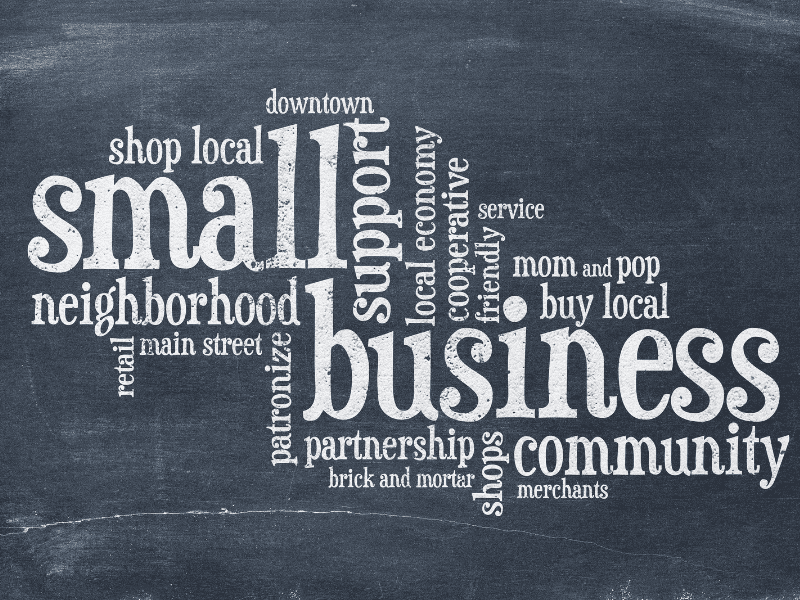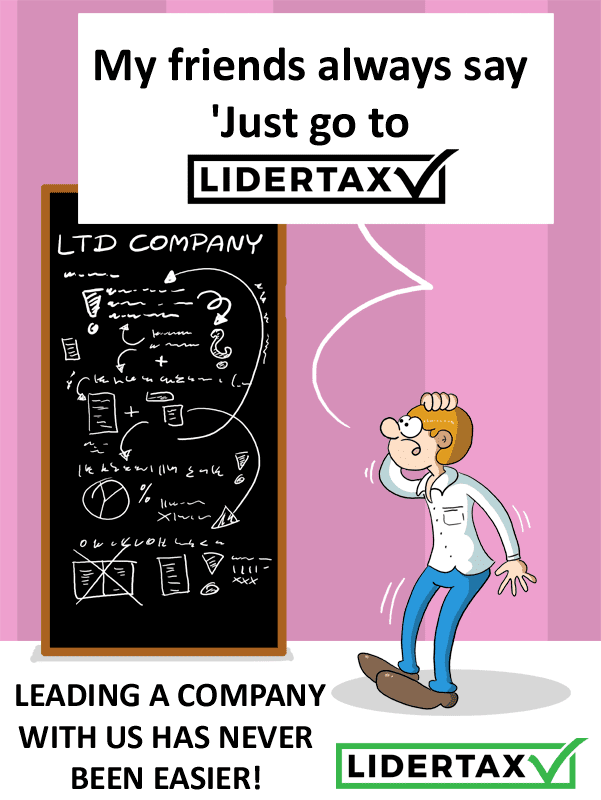
Thinking of starting a business from home? The first thing you’ll need to do is register yourself as a sole trader. As a sole trader, you’ll control your business – from setting your own hours and wages to deciding who can access your accounts. Sole trading has pros and cons, but the process is relatively straightforward. In this article, we’ll outline important steps you need to take to register as a sole trader and explain the benefits and disadvantages of this form of business ownership.
What is a Sole Trader – Explained in Layman’s Terms:
Sole traders are self-employed business owners who operate their own companies without any other employees (self-employed person can have a employees if registered for PAYE). Sole traders are usually small businesses, although sole traders also run some large businesses. In the UK, there are around 3.1 million sole traders, which make up around 56% of all businesses.
They are responsible for all the financial and accounting aspects of their business from finding clients and doing the work to bookkeeping and marketing and typically work from home (but can also have an office). Moreover, Sole traders are the only ones legally obligated to pay their own taxes and National insurance Contributions.
Sole Trader Advantages and disadvantages:
Advantages of Being a Sole Trader:
- First and foremost, it is the most straightforward business structure available. Very little paperwork or red tape is involved in setting up and running a sole trader business. This makes it an attractive option for anyone who wants to be their own boss with minimal hassle.
- If you decide to change the structure into a limited company, later on, you can do so without any complications. On the other hand, changing from limited to sole trader is difficult as it requires you to dissolve your registered business first.
- Anyone can access the annual accounts of a limited company from Companies House, but Sole Trader’s financial information stays private. Your finances will be your business only and no one else’s.
- Another big advantage is you have complete control over your business. As the sole owner, you get to make all the decisions about how your business is run. You don’t have anyone above to answer to or get approval from partners or shareholders before making key decisions. This can be a major plus if you’re someone who likes to be in charge and calls the shots
- Moreover, you can keep all your business’s profits. Unlike other business structures, there is no need to share profits with partners or shareholders. This can be a big advantage if your business is successful and you want to maximise your earnings.
- As a Sole Trader, your tax responsibilities are fewer than other structures. You don’t have to pay corporation tax because your business is not incorporated. You just have to submit a Self-Assessment Tax Return every year. And if and when you register for VAT, you need to file and pay it quarterly.
- Finally, it is relatively easy and inexpensive to set up. Compared to other business structures, there are very few costs involved in setting up a sole trader business. You will need to register with HMRC and set up a business bank account, but beyond that, there are no high start-up costs to worry about.
Sole Trader Disadvantages:
- Being a sole trader also has some disadvantages. Because you’re running the business on your own, you also have to do everything yourself. This can be quite stressful and time-consuming, especially if you’re not used to doing things like marketing or bookkeeping.
- As the sole trader, you are personally liable for losses and debts a business incurs. This means that if your business gets into financial trouble, your personal assets (such as your home or savings) could be at risk. This can be a big financial risk, particularly if your business is involved in high-value transactions or is dealing with large amounts of money.
- Sole traders can find it harder to get funding from banks or other financial institutions because they are seen as higher risk than limited companies. This is because the business and its owner are not legally separate, so lenders are more likely to view the business as a personal asset which could be used to repay debts.
- You may have to work very long hours than someone who works for a company, as you will be the one responsible for all aspects of the business. This can lead to burnout and stress, particularly if you are working hard to grow the business.
Who Has to Register as a Sole Trader? – What is a Sole Trader Examples:
Anyone who is self-employed (and earned more than £ 1000 in Tax Year) and running their own business as a sole trader must register with HMRC. This includes people who are:
- Freelance workers
- Contractual workers
- Business consultants
- Running a business from home
If you are employed and also run your own business on the side, you will also need to register as a sole trader for your self-employment income.
Sole Trader vs Limited Company
In the business world of the UK, there are two most common types of structures that companies can operate under sole traders and limited companies. Each has its pros and cons, and the right choice for your business will depend on several factors.
Sole traders are businesses that a single individual owns and operate. This is the simplest type of business structure and generally requires less paperwork and compliance than a limited company. However, Sole traders have unlimited liability for the debts of their business, which means that their personal assets are at risk if the business can’t pay its debts.
Limited companies are businesses that shareholders own. The liability of the shareholders is shielded and limited to the amount of money they have invested in the company. This type of structure offers some protection for the owner’s personal assets, but it also generally requires more compliance than a sole trader.
Sole Trader vs Self-Employed
There is a common misconception that being a sole trader and being self-employed are one and the same. While there are similarities in both, there’s also a very slight difference.
Essentially, anyone who is a sole trader is self-employed. However, not all self-employed people are sole traders. This is because a sole trader is a business structure like limited while self-employed means you are not employed by anyone else and pay tax via PAYE.
As a self-employed person, you can register as a partnership, sole trader, or limited company.
Is being a sole trader right for me?
One of the main considerations is the level of financial risk you are willing to take on. As a sole trader, you will be held liable for losses and debts incurred by your business. This means that if your business fails, you could lose your home or other personal assets. In contrast, if you set up as a limited company, your assets will be protected if your business fails.
Another important consideration is the level of control and flexibility you want over your business. As a sole trader, you will have complete control over all aspects of your business, from decision-making to day-to-day operations. However, this also means that you will have responsibility for any mistakes or problems. Suppose you set up as a limited company. In that case, you can share responsibility for running the business with other directors, which can make things easier but may also reduce your control over the business.
Tax is another key consideration when setting up as a sole trader. You must register with HMRC and file self-assessment tax returns annually. This can be a complex and time-consuming process, particularly if your tax affairs are not straightforward.
Moreover, think about whether or not you have the appropriate skills and knowledge to run a business. If you don’t have experience in bookkeeping, marketing or management, you may want to consider taking some courses or hiring someone with more experience.
If you decide in favour of being a sole trader, the next step is to register with HMRC. You can do this online, by post or over the phone. Once registered, you will be issued a unique taxpayer reference (UTR). This UTR will be used on all of your self-assessment tax returns.
How to register as a sole trader?
You don`t have to register before you start your business. You can work for few months before registration. If you didn’t earn more than £1000 in tax year, you don’t have to register at all.
Self -employed registration can be done online or by post. Once you’ve registered, you must make the Self-Assessment tax return form every year, which you will need to complete and return by 31st January.
If you haven’t registered yet, you need to do so by 5th October in the 2nd tax year of your business. When registering as a sole trader, you will need to provide information such as your name, business address, work type etc. Register here online.
Once you’ve registered with HMRC, you will be given a Unique Taxpayer Reference (UTR), which is your 10-digit Sole Trader tax number.
You will also need to open a business bank account in your sole trader’s name. You can do this through your current personal bank, or you may want to shop for a business account offering better service and features.
Once you register as a sole trader, you will need to maintain accurate records of your finances, including income and expenses. This will enable you to complete your Self-Assessment tax return each year and pay any tax due.
Picking a trading name: what you need to know
When registering as a sole trader in the UK, you must pick a trading name. This is the name you will use for your business and will be displayed on any marketing materials, stationery, and signage (most common is to use you own name).
The process of picking a trading name can be daunting, but it doesn’t have to be. Here’s how to choose a trading name that is right for your business:
1. Keep it simple. A trading name should be easy to remember, pronounce, and spell. Avoid using abbreviations or acronyms, as these can be confusing for customers.
2. Make it unique. Your trading name should be different from any other businesses in your industry. This will help you stand out among the competition and make it easier for people to find you.
3. Use keyword research. Use tools like Semrush or Google AdWords Keyword Planner to find out which keywords are most popular in your industry. Including these keywords in your trading name will make your business appear more frequently for local searches.
4. Don’t use your personal name. Unless you are a well-known individual in your industry, using your personal name as your trading name is not a good idea. It can make your business seem small and unprofessional.
5. Get creative. If you are struggling to create a unique and catchy trading name, try thinking outside the box. Use wordplay, puns, or jokes to create a memorable name that people can remember.
What are the responsibilities as a sole trader?
- Ensuring that your business complies with all relevant laws and regulations, including taxation, health and safety, and data protection
- Keeping accurate financial records of your income and expenditure and preparing and filing annual accounts with HMRC.
- You will be paying taxes on your business income and National Insurance contributions (NI2 and NI4) that are due.
- Depending on your business industry, there may be specific regulations that you need to comply with and get proper licenses. For example, businesses that sell food may be subject to health and safety regulations.
- If you hire one or more employees, you will have to get employers’ liability insurance as well to cover claims made by employees for injuries or illnesses caused by work.
What is a Sole Trader – Parting Words:
As someone who’s working alone, you will be required to take on a range of responsibilities and obligations in order to keep your business running smoothly. Make sure you are well-versed in the relevant laws and regulations governing your industry before starting up so that you can avoid any problems down the line.





